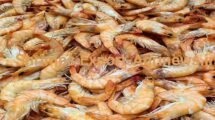Hester Biosciences Ltd, a player in animal healthcare, will develop and commercialize a low pathogenic avian influenza inactivated vaccine for poultry.
The corporation has entered into an agreement with the Indian Council of Agricultural Research – National Institute of High-Security Animal Diseases (ICAR-NIHSAD) to obtain indigenously developed technology for the development and commercialization of the Low Pathogenic Avian Influenza (H9N2 strain) Inactivated Vaccine for poultry.
Agrinnovate, which is a government agency, acted as a link between ICAR and agricultural players to transfer technology for making vaccines in the veterinary sector.
Related Agri News | “Poultry industry” wants to set up an exclusive board to control output, prices
Agrinovate says that the locally made vaccine has passed tests for sterility, safety, and effectiveness in the lab. It further stated that the vaccination gives 6 months of protective immunity in chickens.
After completing the necessary field research and receiving regulatory permissions, Hester intends to commercialize this Vaccine by the end of 2023.
The agreement was signed on December 27, 2022, in the presence of Himanshu Pathak, Director General (DG), ICAR, Praveen Malik, CEO, of Agrinnovate India, Aniket Sanyal, Director, NIHSAD, and Rajiv Gandhi, CEO & MD, Hester, as well as other key officials.
This advancement advances the country’s goal of being aatmanirbhar (self-sufficient) in H9N2 vaccine for poultry.
Hester says that this inactivated H9N2 chicken vaccination was made using a local isolate. This makes sure that the vaccine is made from the local strain instead of a strain that was brought in from somewhere else.
Hester plans to sell the vaccine not only in India, but also through its own distribution network to African and Asian countries, where there is already a need for it.
The vast poultry population in India is an important source of income for rural India. Despite repeated epidemics across the country, India has no vaccine for Avian Influenza until now. According to the statement, these facts indicate that this vaccine has a high commercial potential.
Related Agri News | ‘Give a missed call and become a poultry farmer’ says Suguna Chicken
The Low Pathogenic Avian Influenza H9N2 Strain causes comorbidity in chicken flocks all year, resulting in massive economic losses for poultry breeders. The disease has a modest mortality rate of up to 6% in general, although this might increase dramatically in the context of other infections. It may also result in an irreparable decline in egg production (up to 50%) in layer birds and a performance loss in broilers.


















Add Comment